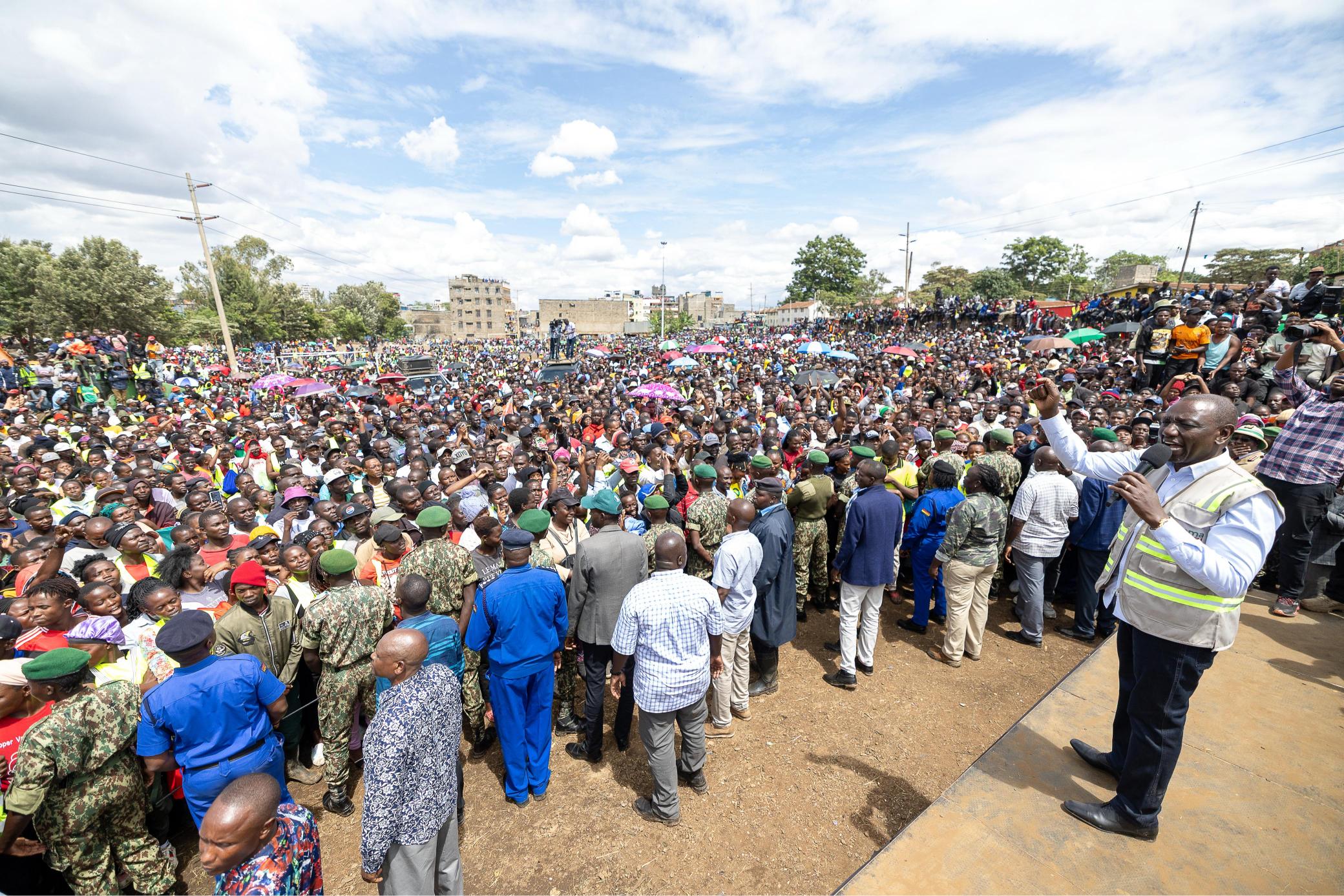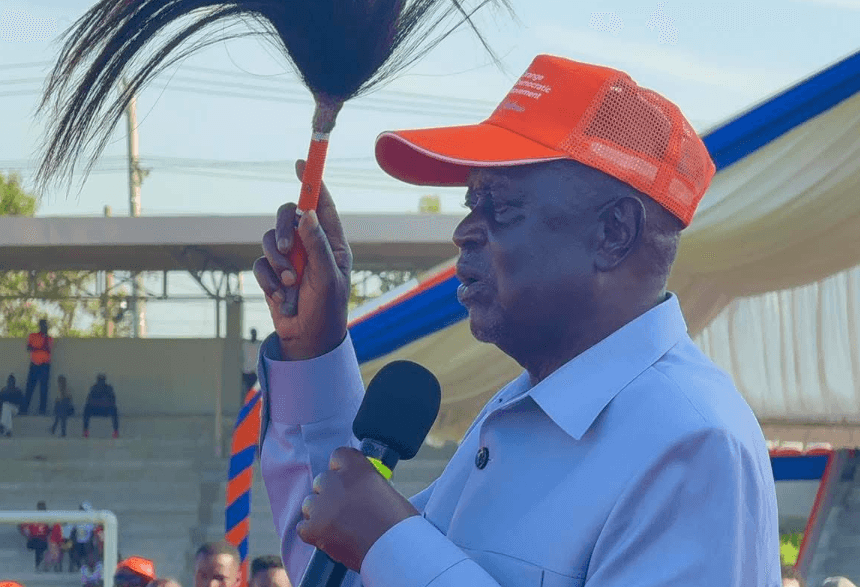
 President William Ruto addresses Nairobi residents during his tour of the County in Kamukunji on March 10, 2025/PCS
President William Ruto addresses Nairobi residents during his tour of the County in Kamukunji on March 10, 2025/PCSThe Nairobi Rivers Commission has called for a change in mindset if the ongoing efforts to clean the Nairobi basin are to be sustained.
Commission chairperson Margaret Wanjiru said Nairobi residents will play a key role in sustaining the clean-up efforts.
In an interview, the chairperson revealed that the number of plastic bottles in the river is devastating, becoming a major headache.
“Why should we throw garbage into the river? Why should we throw papers and plastic bottles into the river?” Wanjiru posed.
“That said and done, it's up to us as Kenyans to clean up our rivers.”
While calling for action over use of plastic bottles, Wanjiru said the sewer line is another challenge.
“The sewer system is the greatest problem we've had in this country and the sewer is not only for raw sewer but also for the chemicals that come from the factories,” Wanjiru said.
The government has started fixing the sewer along the 27-kilometre stretch, a move expected to be completed next year.
Once the line is complete, she said, raw effluent flowing into the river will be a thing of the past.
Wanjiru said the laws that are already in place will help sustain the cleaning efforts.
She highlighted the amenities that will be put up across the river basin.
“There are houses...the affordable housing and then there are the markets—the linear markets are coming around the river. All the people who are walking and working along those paths must have the discipline of using the dust bin, not throwing trash on the floor, not allowing the landscaping that will be done to be dirty. We'll have to preserve the work that will be done,” she said.
Cleaning efforts will take place across three rivers simultaneously, Wanjiru said.
“We were running with the 27 kilometres of the Nairobi river. Now reality has hit home that the Ngong River, Mathare River and the Nairobi River must go together. I think it will take a bit more time, but I'm sure we will have something substantial to present to the people in January 2027, according to his Excellency's [the President] calendar.”
The commission has been coordinating the implementation of 10 thematic areas, including catchment reclamation and protection; riparian reclamation and beautification; reduction of waste (solid, industrial and institutional waste and sewerage); people and social (community engagement); as well as drainage and hydrology.
To ensure these thematic areas are adequately addressed, the agency has been coordinating with government MDAs and the county governments of Nairobi, Kiambu, Kajiado, Machakos and Makueni through working groups involving the stakeholders.
On March 10, President WIlliam Ruto launched the Nairobi River Regeneration and Engineering Works Programme to be implemented for Sh50 billion.
The project was expected to create 40,000 jobs—up from 22,000 under the ClimateWorx Mtaani Initiative—besides the construction of a 60km sewer line and 50,000 affordable houses in the reclaimed areas.
The commission and ministries of Housing, Environment and Defence are jointly implementing the project.
During the launch, Ruto said the Nairobi Rivers Regeneration Project integrates affordable housing, modern markets and enhanced infrastructure, transforming it into a liveable and economically vibrant city.
He described the project as a life-changing initiative that will ensure dignified living, sustainable transport and economic empowerment for thousands of residents.
Extending to Kiambu, Machakos, Kajiado and Murang’a, the project entails river rehabilitation, flood mitigation, waste management and sewer lines, improving public health and urban resilience.
In the 2025-26 budget, Treasury CS John Mbadi allocated Sh26.8 billion for water and sewerage infrastructure development, Sh16.5 billion for water resources management and Sh1.9 billion for water storage and flood control.




















